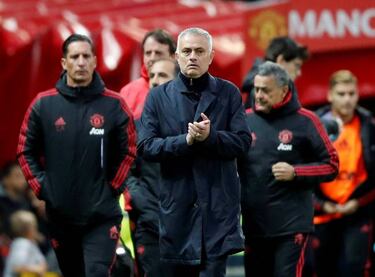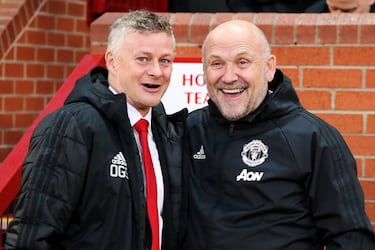Solskjaer: 'caretaker syndrome' to play out at Theatre of Dreams
The feel good factor was brought back by the Norwegian after the Mourinho nightmare had ended, but should United fans be prepared for the worst?


Ole Gunnar Solskjaer stepped into the destructive void left by José Mourinho, and immediately brought the 'feel good factor' back to Old Trafford. Players and fans were happy, the results were sensational, and a season struck off as lost, quickly turned into one of aspiration and renewed belief. That early positivity led the United board to appoint the relatively inexperienced caretaker manager as the new permanent boss, a decision that some argue may have been made a little prematurely.
Dream job for Solskjaer
After being appointed to cover for Mourinho in December, by late January he was receiving plenty of praise from all quarters. He had won his first eight games in charge, something no new United manager had ever done, with the eighth coming in the FA Cup against Arsenal at the Emirates Stadium. He would go on to set more records and was clearly loving what was happening.
“This is the job that I always dreamed of doing," he shared after being given the position full-time. "And I’m beyond excited to have the chance to lead the club long-term and hopefully deliver the continued success that our amazing fans deserve.” United's board announced the appointment just after Solskjaer's side had been beaten in the league for the first time and been eliminated from the FA Cup by Wolverhampton Wanderers. Following that cup defeat, the Norwegian has seen his side labour to a 2-1 victory against Watford, lose to Wolves in the league and then to Barcelona at home in the Champions League. On Sunday, two Pogba penalties spared the Old Trafford blushes against a superior West Ham side.

So, despite them still being in contention for a spot in the Premier League top four, and their heroics in Paris still fresh enough in the memory, why does it feel like the 'caretaker syndrome' - short period of success followed by regression to the norm or below - is taking hold?
Caretaker challenges
We've seen this before, of course, with examples in the same league including Craig Shakespeare at Leicester City and Glen Roeder at Newcastle United. Shakespeare took over as caretaker from Claudio Ranieri after their post-Premier League title season saw them in the relegation zone by February. Beating Liverpool in his first match started a five-game winning streak and he took them to the quarter-finals of the Champions League. Results had already dropped before the end of that season but nonetheless he was made permament manager. Three months later he was sacked.
Related stories
Roeder had the prolific Alan Shearer in his team, along with Michael Owen, but took over a side in serious trouble in the 2005/06 Premier League. The change worked and as caretaker the former player won four of his first five, and ten of the 15 remaining games of the season, drawing two others. His contract was made permanent and things turned. He was gone within the year.

Solskjaer may come to be a managing legend at Old Trafford, it is clearly too early to tell. But the doubts are certainly hovering as to why the decision to appoint him on a long-term contract was made so urgently, especially as performances were hardly stunning, and match statistics were suggesting they were picking up significantly more points than were expected. Caretaker managers often provide a bounce in results, especially at teams where the players are seriously under-performing upon arrival. Maintaining that, and taking it to the next level, is more challenging.